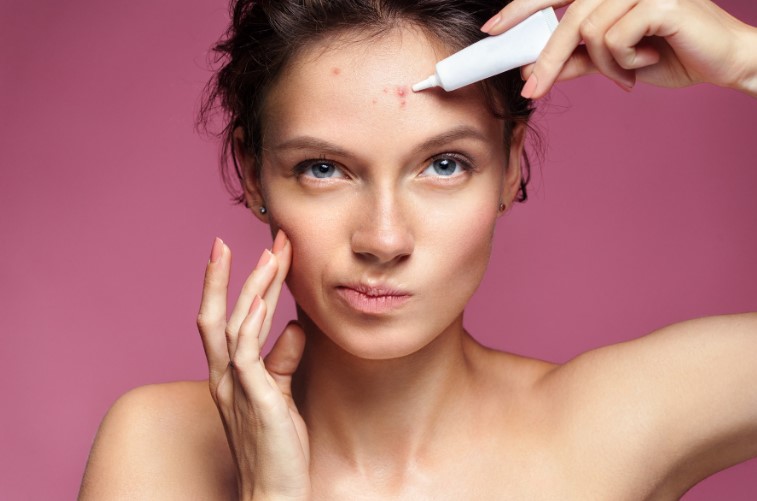Peyronie’s disease is a condition that affects the penis, causing the formation of fibrous scar tissue, which leads to a curvature of the penis during an erection. This condition can cause pain, discomfort, and erectile dysfunction. High blood pressure, on the other hand, is a condition that causes the blood to exert too much pressure on the walls of the blood vessels. This may result in a number of health issues, including renal disease, heart disease, and stroke. While these two conditions may seem unrelated, recent research has suggested that there may be a link between Peyronie’s disease and high blood pressure.
The Link Between Peyronie’s Disease and High Blood Pressure:
The exact cause of Peyronie’s disease is not yet known, but it is thought to be caused by trauma to the penis, genetics, or inflammation. High blood pressure, on the other hand, is caused by a variety of factors, including lifestyle habits, age, and genetics. While these two conditions may have different causes, recent studies have suggested that there may be a link between them.
One study published in the Journal of Sexual Medicine in 2015 found that men with Peyronie’s disease were more likely to have hypertension, or high blood pressure, than men without the condition. The study analyzed data from 261 men with Peyronie’s disease and 278 men without the condition. The researchers found that 48% of men with Peyronie’s disease had high blood pressure, compared to 36% of men without the condition.
Another study published in the International Journal of Impotence Research in 2018 found a similar link between Peyronie’s disease and high blood pressure. The study analyzed data from 374 men with Peyronie’s disease and 250 men without the condition. The researchers found that men with Peyronie’s disease were more likely to have hypertension than men without the condition. They also found that the severity of the Peyronie’s disease was correlated with the severity of the hypertension.
The exact mechanism by which high blood pressure may lead to Peyronie’s disease is not yet clear, but it is thought to be related to the increased pressure that high blood pressure puts on the blood vessels. This increased pressure may cause damage to the blood vessels in the penis, which can lead to the formation of scar tissue and ultimately Peyronie’s disease.
Treatment for Peyronie’s Disease and High Blood Pressure:
The treatment for Peyronie’s disease and high blood pressure may vary depending on the severity of the conditions and the individual patient. Treatment options may include medications, surgery, or the use of Vacuum Erection Device or VED for Peyronie’s disease. Extracorporeal shockwave therapy for Peyronie’s disease is also turning out to be a very good treatment option for men with PD. Peyronie’s disease occasionally gets better on its own without any medical intervention.
For high blood pressure, treatment options may include lifestyle changes such as exercise and dietary changes, as well as medications such as ACE inhibitors, beta-blockers, and calcium channel blockers. It is important for patients with high blood pressure to work closely with their healthcare provider to develop an individualized treatment plan that is appropriate for their specific needs.
Prevention of Peyronie’s Disease and High Blood Pressure:
While the exact causes of Peyronie’s disease and high blood pressure are not yet known, there are several steps that individuals can take to reduce their risk of developing these conditions. These steps include:
- Maintaining a healthy weight: Being overweight or obese can increase the risk of both Peyronie’s disease and high blood pressure.
- Eating a healthy diet: Eating a diet that is low in salt, saturated fat, and cholesterol can help to prevent high blood pressure.
- Exercising regularly: Regular exercise can help to maintain a healthy weight, reduce stress, and lower the risk of developing both Peyronie’s disease and high blood pressure.
- Managing stress: Stress can contribute to high blood pressure, so it is important to find ways to manage stress, such as through meditation, yoga, or other relaxation techniques.
- Quitting smoking: Smoking can damage blood vessels and increase the risk of Peyronie’s disease and high blood pressure.
- Limiting alcohol intake: Drinking too much alcohol can contribute to high blood pressure and may also increase the risk of Peyronie’s disease.
- Seeking medical treatment: If you have symptoms of Peyronie’s disease or high blood pressure, it is important to seek medical treatment as soon as possible. Early identification and treatment can lessen complications and enhance results.
Conclusion:
Recent research has suggested that there may be a link between Peyronie’s disease and high blood pressure. While the exact mechanism by which high blood pressure may lead to Peyronie’s disease is not yet clear, it is thought to be related to the increased pressure that high blood pressure puts on the blood vessels. Treatment options for Peyronie’s disease and high blood pressure may vary depending on the severity of the conditions and the individual patient, but lifestyle changes, medications, and devices may be used. Prevention strategies include maintaining a healthy weight, eating a healthy diet, exercising regularly, managing stress, quitting smoking, limiting alcohol intake, and seeking medical treatment as needed.
If you are suffering from Peyronie’s disease then you should not take this issue lightly and should seek treatment as soon as you can. One of the best places where you can get treatment for PD is at MANSMATTERS. Highly skilled professionals at MansMatters use a wide range of non-invasive treatment options, such as shockwave therapy, EMTT therapy, functional magnetic stimulation (Tesla chair), and Nano Vi Exo, to treat men with PD or other sexual disorders.





